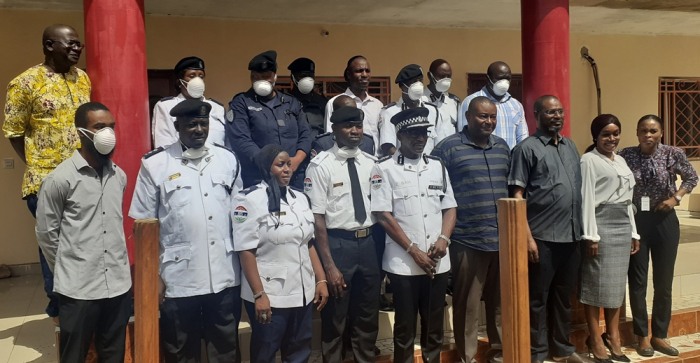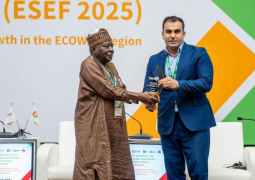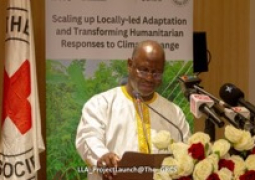
Emmanuel Daniel Joof was speaking recently at a two-day retreat convened by the National Human Rights Commission held at Tendaba Camp in Kiang Central, Lower River Region. The retreat was centered on two documents namely: Code of Conduct for Police Officers and Guidelines for Policing Assemblies in The Gambia.
The retreat, which attracted 12 police officers, was designed to arm participants with the requisite knowledge in understanding and protecting the rights of others, especially those who are sometimes excluded or discriminated against in society including women, children and minorities.
Mr. Joof indicated that understanding the two documents would assist participants in upholding human rights standards and act strictly in accordance with the law and the spirit of national, regional and international human rights laws, standards, framework and obligations.
He cited that Section 4 of the Constitution provides the police to preserve the law and order of the country, the protection of properties, apprehension of offenders and the due enforcement of all law and regulations with which they are charged.
“In exercising their mandate and discharging their duties, the police are, however, required to follow due process and also adhere to the provisions of chapter 4 of the 1997 Constitution regarding safeguarding the rights of suspects during arrest, detention and trial.”
He added: “By embracing these guidelines, we hope to ensure respect for human rights, protect public order, peace and security and enhance law enforcement which meets international standards as per regional legal instruments which guarantee right to association and assembly.”
The guidelines, he continued, are adopted mainly from the African Commission Guidelines for the Policing of Assemblies by Law Enforcement Officials in Africa, and it address issues affecting the rights to freedom of association and assembly with specific focus on policing public assemblies.
For his part, Ebrima Bah, deputising for the Inspector General of Police, said that after more than fifty years of nationhood, The Gambia Police Force has never been provided with a specific code of conduct that governs its operations.
“Officers were guided by the Force Standing Orders (FSO) and the Public Service Code of Conduct and the latter is not necessarily adequate for the peculiar nature of policing. The FSO is now obsolete given advances in society and the new dynamics of policing in modern times”.
Bah, however, maintained that issues relating to human rights are guaranteed to all by virtue of their humanness, saying these rights are inalienable and indivisible.
“In other words, they are a complete set of rights applicable to all human beings. They are the rights to life, liberty, freedom of movement, assembly, association, religion and speech amongst others.”
These rights, he explained further, are enshrined in the United Nations Universal Declaration of Human Rights (UDHR) proclaimed in 1948. The Gambia, like most member states of the United Nations, has ratified the UDHR and thus is obliged to uphold and protect these rights.




